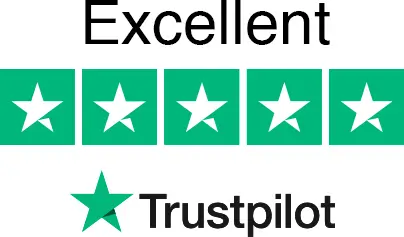Key Takeaways
- Registering your business name as a trademark in the UK gives you exclusive rights and robust legal protection against competitors using, copying, or cashing in on your brand.
- Without a UK trademark, you risk expensive disputes, enforced rebranding, and loss of customer goodwill if others use similar names.
- The cost to trademark a business name in the UK typically starts at £170, with further fees if you add more categories or classes.
- Registering your company at Companies House does not protect your brand name—only a registered trademark gives you legal ownership and enforceable rights over your business identity.
- Claims for ‘passing off’ are difficult, slow, and costly. A registered trademark is the strongest way to safeguard your brand and avoid these legal headaches.
- The UK trademark application process is clear and accessible if you follow a guided checklist and avoid common mistakes.
- Some names cannot be trademarked if they are generic, descriptive, misleading, or already registered—always check availability first.
- Go-Legal AI is rated Excellent on Trustpilot with over 170 five-star reviews from delighted business owners.
- Using expert-checked templates and instant tools from Go-Legal AI dramatically lowers the risk of rejected applications or future legal issues.
- By trademarking your business name, you increase its value, make your brand more resilient to competitors, and boost your long-term business credibility.
Should I Trademark My Business Name in the UK? Key Costs, Risks, and Process Explained
Worried someone might copy your business name, or unsure what trademark protection in the UK really offers? Many founders and small business owners discover too late that simply registering a company or domain name does not secure exclusive rights to use their brand. Without a registered trademark, you risk expensive legal disputes, brand confusion, and loss of reputation to competitors or copycats.
In this practical guide, you’ll learn the answer to, “Should I trademark my business name UK?” We clarify the difference between company registration and trademarking, explain the real risks if you skip registration, and offer a simple, step-by-step approach to protecting your business name under UK law. You will also understand how much it costs to trademark a business name in the UK, see how to avoid common mistakes, and get actionable steps to secure your brand for long-term success.
With Go-Legal AI, you can navigate the UK trademark process confidently. Our lawyer-reviewed templates, instant checkers, and expert support remove the guesswork—so you can focus on growing your business.
Should I Trademark My Business Name in the UK?
If you want to build a credible, investable business that stands out and cannot be easily copied, trademarking your business name in the UK is essential. Company or domain name registration does not provide legal protection for your brand name—only a trademark does. If you are asking, “Should I trademark my business name UK?”, the answer is a clear yes if you want exclusive rights, protection against imitation, and genuine long-term ownership of your brand.
What’s the Difference Between Registering a Company Name and a Trademark?
Registering a company name at Companies House confirms your legal trading entity and identity in the eyes of the law and HMRC. However, it does not stop other businesses from using similar names, especially in other industries or as brands. By contrast, a trademark registered with the UK Intellectual Property Office (UKIPO) gives you exclusive, enforceable rights to use your brand name in connection with certain goods or services.
| Feature | Company Name Registration | UK Trademark Registration |
|---|---|---|
| Where Registered | Companies House | UK Intellectual Property Office (UKIPO) |
| Legal Protection | Only against identical company names | Exclusive rights for named goods/services |
| Scope | Business identity only | Covers branding, marketing, product sales |
| Enforceable? | No (other than company names) | Yes—can take legal action, stop infringers |
What Legal Protection Does a UK Trademark Provide for My Business?
A registered UK trademark is your best line of defence. It gives you exclusive rights to use your brand name for the specific goods or services listed in your application. With these rights, you can legally stop others from using, importing, marketing, or selling products and services under identical or confusingly similar names. It also lets you license or sell your trademark—turning your brand into a valuable business asset.
What Are the Risks If I Don’t Trademark My Business Name in the UK?
If you skip trademarking, your brand is exposed. Others can legally use similar or even identical names, especially in different sectors or locations. You risk being forced to rebrand, losing loyal customers, or even facing legal action if someone else registers the trademark before you.
How Much Does It Cost to Trademark a Business Name in the UK?
Trademarking your business name is a low-cost safeguard compared to the cost of rebranding or litigation. As of 2024, the UKIPO charges £170 for filing one class online, with an additional £50 per extra class. Most applications in a single category cost between £170 and £220 total. If your application contains errors or faces objections, costs can rise due to the need for expert intervention or refiling.
⚡ Get legal tasks done quickly
Create documents, follow step-by-step guides, and get instant support — all in one simple platform.
🧠 AI legal copilot
📄 5000+ templates
🔒 GDPR-compliant & secure
🏅 Backed by Innovate UK & Oxford
Step-by-Step Process: How to Trademark Your Business Name in the UK
Trademarking your business name in the UK requires careful preparation and attention to detail. Here’s exactly how to protect your brand, step-by-step:
1. Trademark Readiness Checklist
| Step | Task | Why It Matters |
|---|---|---|
| 1 | Choose a distinctive, non-generic name | Avoids rejection for being too vague or descriptive |
| 2 | Check availability in UKIPO, Companies House, Google | Confirms your name is unique and registrable |
| 3 | Select correct trademark classes | Ensures all goods/services are covered |
| 4 | Write a clear, accurate trademark description | Prevents future scope limitations or confusion |
| 5 | Check for similar existing trademarks | Reduces chance of costly objections |
| 6 | Gather applicant details (individual/company) | Required for legal ownership and future enforcement |
| 7 | Plan ongoing trademark monitoring | Protects you from future infringing use |
2. The UKIPO Application Process
- Search for Existing Trademarks
Use the UKIPO online database to identify identical or similar names before you file.
Time: 1–2 days - Select the Right Classes
Use the Nice Classification to select all categories your goods/services fit into.
Time: 1–2 days - File Your Application
Complete the online form via UKIPO, providing business name, classes, applicant details, and pay the correct fee.
Time: 1–2 hours - UKIPO Examination
The examiner reviews your application for clarity and checks for conflicts or legal issues.
Time: 2–4 weeks - Publication & Opposition Period
Your trademark is published for 2 months, during which anyone can oppose it on legal grounds.
Time: 2 months - Trademark Registration
If unopposed (or you defend any opposition), your trademark is registered and you receive a certificate.
Total time: Usually 3–4 months if there are no objections.
Key Requirements and Common Reasons UK Trademark Applications Are Rejected
Understanding why UK trademark applications get refused will help you avoid costly mistakes and delays.
| Requirement/Clause | What It Means | Why It’s Important |
|---|---|---|
| Distinctive Brand Name | Name must be specific and unique—not merely descriptive | Prevents rejection on grounds of generic wording |
| Availability Check | Confirm no one else owns a similar/identical trademark | Avoids wasted time and lost fees |
| Accurate Class Selection | Register for all goods/services you offer or plan to offer | Maximises protection and prevents “gaps” |
| Correct Applicant Details | Ensure all names and addresses are complete and accurate | Prevents ownership disputes or invalid filings |
| Active Monitoring | Watch for new conflicting applications after yours is registered | Secures your trademark rights and business value |
Trademarking a Business Name vs Logo vs Both: What’s Best for Brand Protection?
You can trademark your business name (word mark), your logo (device mark), or both. For most UK businesses, trademarking your business name as a word mark offers the broadest protection, allowing you to use your name in any font or design. Registering your logo secures only that specific visual form.
| What You Can Trademark | What It Protects | Best For |
|---|---|---|
| Name (word mark) | Your business name as plain text | Businesses updating logos |
| Logo (device mark) | Your specific logo (visual graphic/design) | Preventing copycat visual branding |
| Name + Logo | Both elements, via separate applications | Strongest, most comprehensive cover |
Can I Protect My Business Name Beyond the UK? (International & Post-Brexit Brand Protection)
A UK trademark only protects your brand within the United Kingdom. If you intend to operate overseas, especially in Europe post-Brexit, you will need additional registrations.
Q: How do I protect my business name in the EU and other countries?
– EU: Apply for a European Union Trade Mark (EUTM) with EUIPO. UK trademarks don’t cover the EU since Brexit. EUTM starts at €850.
– Worldwide: Use the Madrid Protocol via WIPO to apply for multi-country protection in one application, choosing each target country. Costs depend on the number of countries and classes selected.
Common Mistakes to Avoid When Registering a Trademark in the UK
Many UK businesses hurt their prospects by making simple errors at the trademark application stage. Avoid these costly traps:
- Choosing a name that is too generic or descriptive (“London Bakery” for a bakery business).
- Failing to search for similar or identical existing trademarks—resulting in automatic rejection.
- Limiting classes (covering only some of your products/services) and leaving gaps your competitors can exploit.
- Inputting incorrect applicant details, causing confusion or later disputes over ownership.
- Overlooking or ignoring the 2-month opposition period after publication, which can allow undetected objections.
- Neglecting to monitor and enforce your trademark after registration—letting others dilute or steal your brand.
How Go-Legal AI Simplifies Trademarking Your Business Name
Trademarking can be daunting without the right tools and support. Our approach at Go-Legal AI puts real business owners in control:
- Instantly check trademark availability and get risk ratings using our AI-powered tools—cutting hours off your search process and helping you avoid costly conflict.
- Access ready-to-use, UK-specific application templates reviewed by legal professionals—minimising the chance of filing errors or omissions.
- Receive step-by-step application guidance and on-demand expert reviews, so your filings are completed right first time and with total confidence.
- Use ongoing alerts to monitor for infringement and protect the value of the brand you’ve worked hard to build.
Frequently Asked Questions
Do I have to trademark my business name in the UK if I’ve registered my company?
No. Registering with Companies House only prevents identical company names being registered. It does not stop others from using your business name as a brand or trading name. A trademark is essential to legally protect your brand in the marketplace.
How do I check if my business name is already trademarked in the UK?
You can search the UKIPO online database for free or instantly check availability, review risks, and save hours with our AI-powered checker.
Can I trademark my business name and logo together in one application?
No. In the UK system, you need to file separate applications: one covers your business name as a word mark, the other your logo as a device mark. This ensures full and separate protection for each element.
What happens if someone copies my business name but I haven’t got a trademark?
You must rely on the complex and expensive civil law of ‘passing off’. This route demands you prove reputation, misrepresentation, and damage — a process that’s uncertain, slow, and very costly. A registered trademark gives you the right to immediate legal action and damages.
How long does it take to register a trademark for a business name in the UK?
Assuming no objections, 3–4 months from start to finish is typical with an online UKIPO application.
What’s the difference between trademark, copyright, and passing off for business protection?
- Trademark: Protects your brand name, logo, or slogan (connected to your products or services).
- Copyright: Covers original creative works (like logo artwork, website content) automatically—doesn’t protect the name itself.
- Passing Off: Unregistered legal rights if your branding is copied and customers are misled—but it’s costly and uncertain compared to trademark rights.
Can I trademark a business name that uses common words or phrases?
Only if your name is distinctive and not a straightforward description of your business. “Bright Consulting” for consultancy is likely to fail. Aim for creativity and uniqueness—think “Google” or “Monzo”.
Is a UK trademark valid internationally?
No. For protection outside the UK, apply for a European or international trademark via EUIPO or WIPO, covering all the regions you intend to trade in.
Do I need a solicitor or can I file a UK trademark myself?
You can file online yourself, but missing a key step can cost you dearly. Using intelligent tools and real legal expertise, like those from Go-Legal AI, dramatically improves your chances of a smooth, successful result—without the high costs of a traditional law firm.
How do I renew or update my UK business name trademark?
UK trademarks last 10 years and can be renewed indefinitely. Renewal costs £200 for the first class, £50 for each extra. Update your details online with UKIPO if your business changes structure or contact information.
Protect Your Business Name with an Effortless UK Trademark
Registering your business name as a trademark in the UK is not just a legal box-tick—it’s the single most effective way to lock down your brand, defend your hard work, and avoid costly battles down the line. Company or domain registration alone leaves you at risk of disputes, forced rebrands, and loss of reputation. Only a registered trademark gives you total control and lasting protection.
With Go-Legal AI, securing your trademark is simple, clear, and affordable. Our AI-powered tools check availability instantly, our step-by-step guides walk you through every stage, and our legal experts review your application to catch hidden risks. Start now to protect your brand, boost your business value, and grow with complete peace of mind.
Ready to get your trademark sorted? Sign up for a free trial now and see how simple protecting your brand can be.
⚡ Get legal tasks done quickly
Create documents, follow step-by-step guides, and get instant support — all in one simple platform.
🧠 AI legal copilot
📄 5000+ templates
🔒 GDPR-compliant & secure
🏅 Backed by Innovate UK & Oxford










































